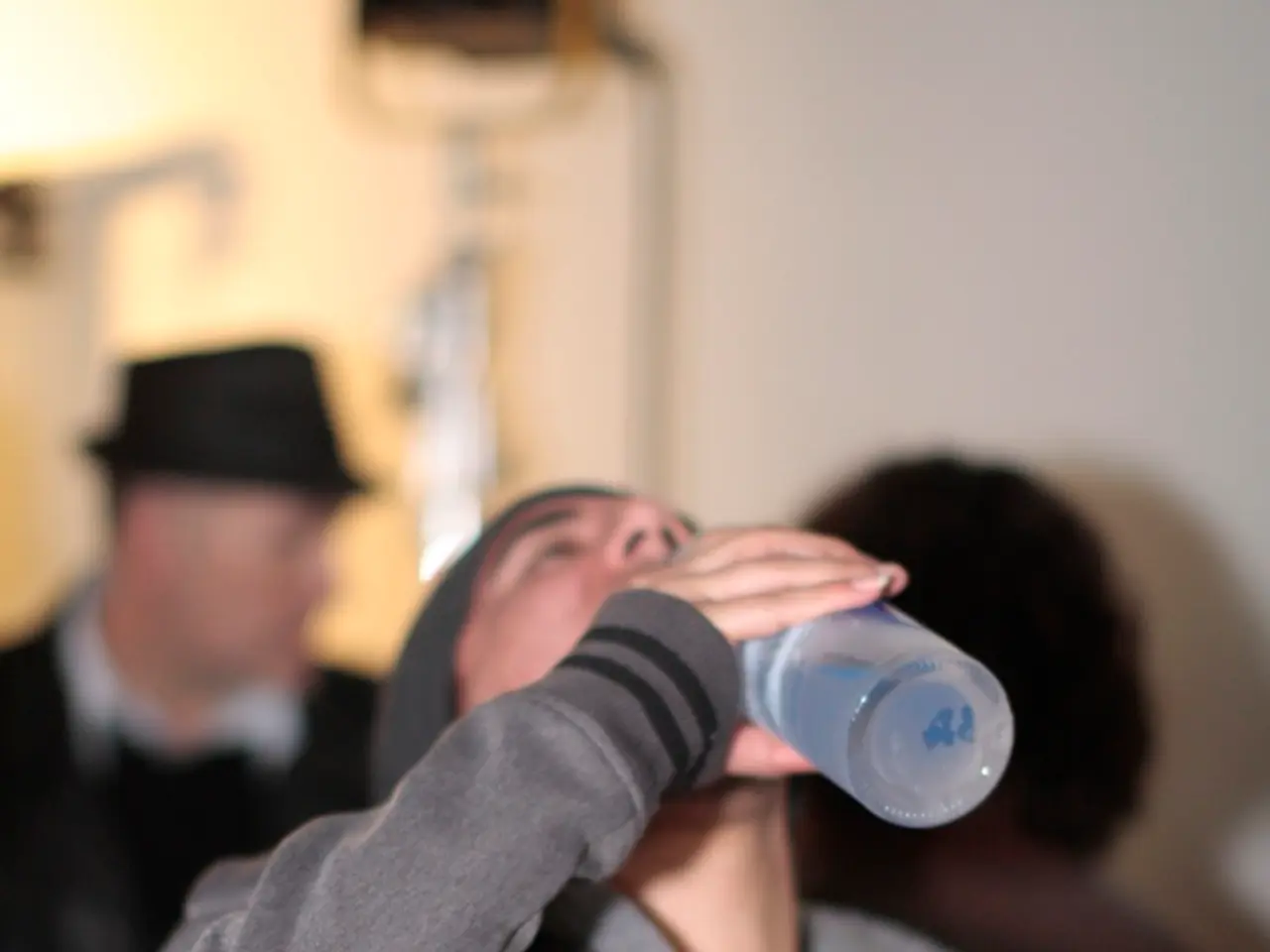Struggling with Dehydration? Here Are the 8 Most Typical Causes
===========================================================================
Staying hydrated is crucial for our overall health, but dehydration can occur even with regular water intake. According to internal medicine specialist Kayla Rapp, DO, several factors can influence fluid levels and cause dehydration [6].
Firstly, certain medical conditions can lead to dehydration. For instance, diabetes causes frequent urination, which can result in fluid loss even with increased water intake [1]. Kidney diseases may require careful fluid management, as both over- and under-hydration can be harmful, and dehydration increases risks like kidney stones and infections [2].
Another contributing factor is an electrolyte imbalance. Proper hydration depends on balanced electrolytes (sodium, potassium, etc.), not only water volume. Drinking plain water without electrolytes during heavy sweating can worsen dehydration symptoms [3][4].
Environmental and lifestyle factors also play a significant role. Hot or humid climates and vigorous physical activity cause fluid loss through sweating and thus increase water requirements [2][4].
Age and physiological factors can also impact hydration levels. Elderly, children, and chronically ill individuals may have impaired thirst perception or difficulty maintaining hydration, making dehydration possible despite adequate intake [5].
Dry mouth (xerostomia) can also mimic thirst but reflects reduced saliva, not actual hydration status. This can cause people to drink water unnecessarily without correcting fluid deficits [1].
It's important to note that not all beverages contribute equally to hydration. Drinking coffee, soda, alcohol, and energy drinks can lead to dehydration due to their diuretic effect [11]. On the other hand, chicken soup can help keep water in the body due to its salt content [14].
In addition to drinking water when thirsty, it's essential to consider factors such as sex, activity level, climate, food choices, and other factors when determining how much water you need each day [10].
Dehydration can have serious consequences, including heat exhaustion and heat stroke. Moderate or severe dehydration requires immediate medical treatment, and a healthcare provider can administer intravenous (IV) fluids and run tests to determine the cause [18].
In conclusion, dehydration can result from imbalanced fluid loss and intake influenced by medical conditions, environmental factors, electrolyte disturbances, and individual physiology, rather than water intake alone. Addressing these factors holistically is important to manage and prevent dehydration effectively [1][2][3][4][5].
References:
[1] American Kidney Fund. (n.d.). Dehydration. Retrieved from https://www.kidneyfund.org/kidney-disease/symptoms-and-causes/dehydration
[2] Mayo Clinic. (2021). Dehydration. Retrieved from https://www.mayoclinic.org/diseases-conditions/dehydration/symptoms-causes/syc-20350278
[3] National Kidney Foundation. (2021). Dehydration. Retrieved from https://www.kidney.org/atoz/content/dehydration
[4] Sports Medicine Australia. (2019). Hydration. Retrieved from https://www.sma.org.au/resource/hydration/
[5] University of Michigan Medicine. (2021). Dehydration in older adults. Retrieved from https://www.uofmhealth.org/health-library/ta3583
[6] University of Pittsburgh Medical Center. (2021). Dehydration. Retrieved from https://www.upmc.com/health/conditions-and-diseases/dehydration
[11] University of Pittsburgh Medical Center. (2021). Caffeine and dehydration. Retrieved from https://www.upmc.com/health/wellness/caffeine-and-dehydration
[14] University of Pittsburgh Medical Center. (2021). Chicken soup for illness. Retrieved from https://www.upmc.com/health/wellness/chicken-soup-for-illness
[17] University of Pittsburgh Medical Center. (2021). Dehydration symptoms. Retrieved from https://www.upmc.com/health/wellness/dehydration-symptoms
[18] University of Pittsburgh Medical Center. (2021). Dehydration treatment. Retrieved from https://www.upmc.com/health/wellness/dehydration-treatment
- A balanced diet rich in nutritious foods, including those with electrolytes, contributes to overall health and helps maintain hydration levels, especially during intense physical activities or in hot and humid climates.
- Incorporating health-and-wellness practices, such as regular water intake when thirsty, mindful electrolyte balance, and considering factors like age and activity level, can help prevent dehydration and its related health risks, such as kidney stones and infections.
- While some beverages, like coffee, soda, alcohol, and energy drinks, can lead to dehydration due to their diuretic effect, others, like chicken soup, can help keep the body hydrated due to their salt content.




